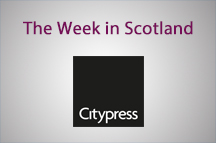 Perhaps it was that Scotland has, for once, been basking in the same kind of heat as the rest of the UK, or maybe it was the rush to depart before the summer recess next week, but this has been a particularly feverish seven days in Scottish politics.
Perhaps it was that Scotland has, for once, been basking in the same kind of heat as the rest of the UK, or maybe it was the rush to depart before the summer recess next week, but this has been a particularly feverish seven days in Scottish politics.
Was it only really on Monday that the SNP performed the latest act in its self-proclaimed “guerrilla war” against the UK government by abstaining in the vote on Heathrow expansion? Lest we forget, this is a policy that the SNP supports. Yet, with Theresa May’s government comfortably having the votes to pass the bill, the SNP took the opportunity to avoid voting with the Tories – always an unpalatable thought for any nationalist worth their salt.
Tuesday saw the beginning of the real drama. Holyrood correspondents, who had been briefed to expect a significant reshuffle of Nicola Sturgeon’s team, twiddled their thumbs whilst Bute House remained resolutely silent.
But then, Education Secretary John Swinney announced that the flagship Education Bill was being shelved after an agreement to “fast-track” reforms had been reached with councils. Scotland’s education system was once proclaimed (at least in some quarters) as the envy of the world, but a slide down international rankings has seen education become one of the most pressing issues facing the government. The proposed bill had not been without controversy, and was likely to face significant challenges during its passage through the Parliament. Swinney may therefore be correct in his assertion that this approach is the fastest way to deliver improvements – and it was certainly welcomed by Scottish Local authority umbrella body COSLA – but for many, former Labour leader Iain Gray’s claim that this was the “mother of all ministerial climbdowns” will ring true.
In what was surely entirely coincidental timing, the First Minister finally began her reshuffle shortly after. Sturgeon doesn’t have a reputation as the most ruthless political operator, but in this most wide-ranging reshuffle since she replaced Alex Salmond (and arguably since devolution) loyalty and personal relationships were left by the wayside. This was a reshuffle of spilled blood and fresh blood.
The most notable casualty was Sturgeon’s close friend Shona Robison who as Health Secretary had been under increasing pressure for the perceived decline of the NHS in Scotland. It is a feature of Sturgeon’s reshuffles that ministers are seen to resign rather than being fired, but there was little doubt that Robison’s position had been deemed untenable. In the end Sturgeon brought five new faces into the Cabinet, including the highly impressive Jeane Freeman, a former Adviser to Labour First Minister Jack McConnell, who was handed the Health brief, and added two new Cabinet posts, including Secretary for Government Business and Constitutional Relations, filled by former Brexit Minister Michael Brown.
The fresh blood continued with the appointment of nine new junior ministers, seven of whom are from the 2016 intake and are likely to form the future backbone of the Holyrood Party. Yet, one who may not feature so prominently is Gillian Martin, named as a junior education minister on Wednesday afternoon, only to see her nomination withdrawn by Sturgeon on Thursday morning after Labour tabled an amendment criticising transphobic comments she had made in a 2007 blog. In a week that has also seen some dramatic finishes in Russia, it would be criminal not to say that this was an unnecessary own-goal (sorry) from the First Minister as the comments had already surfaced in 2016. Sturgeon’s claims that she was unaware of them made her look foolish when, up to that point, she had largely achieved her aims of distracting from the education fudge, and demonstrating that a party that had begun to look a bit stale after 11 years in power could add some dynamism.
Roll on recess. Holyrood needs to catch its breath.
Rory Fletcher, Director












